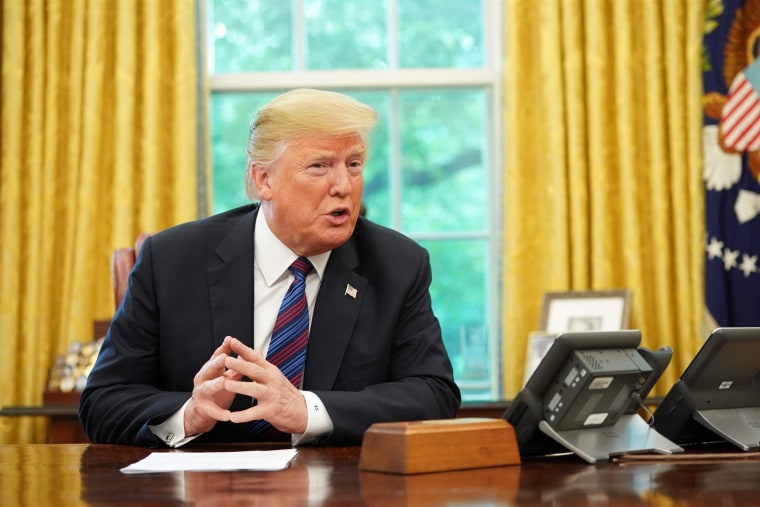When Donald Trump announced the withdrawal of U.S. troops from Syria late last year, the president apparently didn't feel the need to talk about his new policy with key officials and policymakers. Key members of Congress, for example, were blindsided by the news.
Gen. Joseph Dunford, the chairman of the Joint Chiefs of Staff, was reportedly "in the dark" until after Trump had made his decision, and Joseph Votel, head of the U.S. military's Central Command, recently conceded during congressional testimony, "I was not consulted."
Given these circumstances, it's not surprising that the Republican president didn't consult with U.S. allies, either, though he may now realize that was unwise. The Washington Post reported overnight:
As the deadline approaches for the withdrawal of U.S. forces fighting the Islamic State in Syria, America's closest European allies have turned down a Trump administration request to fill the gap with their own troops, according to U.S. and foreign officials.Allies have "unanimously" told the United States that they "won't stay if you pull out," a senior administration official said. France and Britain are the only other countries with troops on the ground in the U.S.-led coalition battling the Islamic State. [...]French Foreign Minister Jean-Yves Le Drian said last week that he was mystified by Trump's policy. On Tuesday, British Foreign Secretary Jeremy Hunt said that "there is no prospect of British forces replacing the Americans" in Syria.
There are a few angles to this that are worth keeping in mind, aside from the fact that Trump obviously should've had a conversation or two with our coalition partners before announcing his withdrawal plans.
First and foremost, if the reporting is correct and the Trump administration requested that European allies keep and deploy troops to Syria, it necessarily means the White House expects Trump's policy to produce adverse consequences. Otherwise, the appeal for European troops wouldn't have been made.
Second, Trump is held in embarrassingly low regard across European capitals, which exacerbates a situation that would be difficult under any circumstances. Anytime an American president asks an ally, "Would you deploy your country's troops, putting them in harm's way, while I pull my troops out?" he or she is likely to face skepticism. When this president does it, the likelihood of success is even worse.
But there's the future to consider: if the Trump administration believes there should be a Western troop presence, and Europe has no interest in filling the gaps created by American withdrawal, the White House will have a difficult decision to make: does Trump withdraw anyway, expecting poor results, or does he flip-flop, inviting political consequences?
